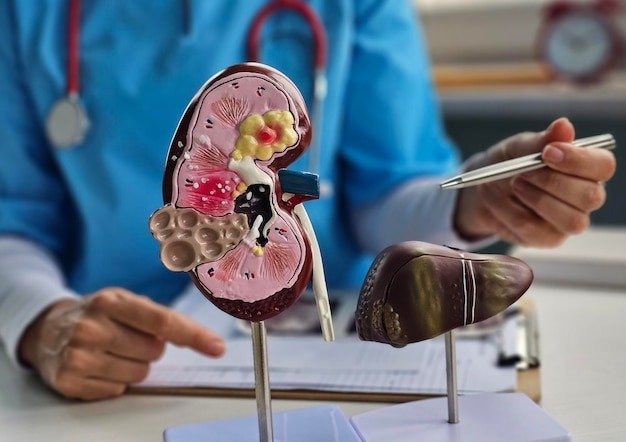- Post By - Dr.Deval Patel Hospital
- Post Date - 2025-05-26
What is Kidney Dialysis?
Kidney dialysis is a life-saving medical procedure used when the kidneys are no longer able to function properly. The kidneys play a vital role in filtering waste, toxins, and excess fluids from the blood. When they fail, harmful substances build up in the body — and that's where dialysis comes in.
What is Dialysis?
Dialysis is an artificial process that performs the function of healthy kidneys. It removes waste, toxins, and extra fluid from the blood when the kidneys can’t do so naturally.
-
This process helps maintain:
- Proper fluid balance
- Safe levels of minerals like potassium, sodium, and bicarbonate
- Blood pressure control
When is Dialysis Needed?
Dialysis is typically recommended in cases of:
- Chronic Kidney Disease (CKD) – especially when kidney function drops below 10-15%
- Acute Kidney Failure – sudden loss of kidney function due to illness or injury
- Severe symptoms such as swelling, fatigue, nausea, confusion, or shortness of breath
- Dangerous levels of creatinine, urea, or potassium in blood
Types of Dialysis
There are two main types of dialysis:
Hemodialysis
In hemodialysis, your blood is filtered through a machine (dialyzer) that removes waste and excess fluids.
Usually done at a dialysis center or hospital
Performed 2–3 times a week
Each session takes about 3–4 hours
Peritoneal Dialysis
This type uses the lining of your abdomen (peritoneum) to filter blood inside the body. A special fluid is inserted into the abdominal cavity, which absorbs waste and is later drained.
Can be done at home
Types: Continuous Ambulatory Peritoneal Dialysis (CAPD) and Automated Peritoneal Dialysis (APD)
Precautions During Dialysis
- To ensure a safe and effective dialysis routine, follow these precautions
- Maintain hygiene to prevent infections
- Follow a kidney-friendly diet (low salt, controlled fluid intake)
- Take prescribed medications regularly
- Avoid over-the-counter painkillers unless advised
- Monitor blood pressure and weight regularly
- Report any unusual symptoms to your doctor immediately
Is Dialysis a Permanent Solution?
No, dialysis is not a cure for kidney failure — it’s a support system. Some people may need it temporarily, while others with chronic kidney disease may require lifelong treatment unless they get a kidney transplant, which is considered a permanent solution.
Conclusion
Dialysis can dramatically improve the quality of life for people with kidney failure. Early detection of kidney disease, a healthy lifestyle, and regular medical follow-ups can help delay or even avoid the need for dialysis.
If you or someone you know is dealing with kidney problems, consult a nephrologist and get proper guidance.
 24/7 Medical Service
24/7 Medical Service
 24/7 Ambulance Service
24/7 Ambulance Service
 Emergency Service -
Emergency Service - 

